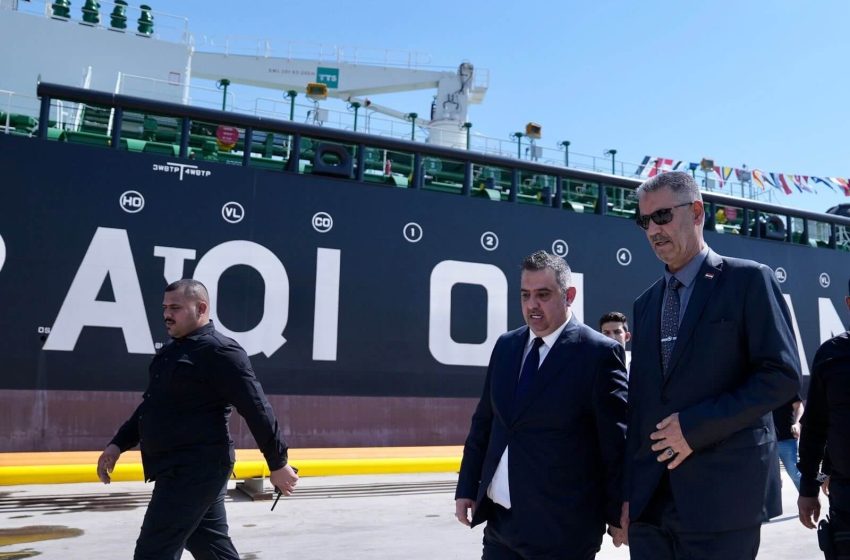Iraq inaugurates new 200,000-barrel-capacity oil tanker

The Iraqi Minister of Oil, Hayan Abdul-Ghani, and other officials during the inauguration of the new oil tanker, Sumer. Photo: INA
Baghdad (IraqiNews.com) – The Iraqi Minister of Oil, Hayan Abdul-Ghani, announced on Thursday the inauguration of the new oil tanker, Sumer, with a capacity of 200,000 barrels.
Abdul-Ghani, during the inauguration ceremony held at the Khor Al Zubair Port in southern Iraq, said that the Iraqi Oil Tankers Company (IOTC) is looking forward to developing its fleet through contracts signed with international companies to build modern tankers with different tonnages.
The Oil Minister explained that the new oil tankers will gradually increase the IOTC’s ability to transport larger quantities of crude oil and other petroleum products to cope with the current development in the oil industry in Iraq.
Last month, director of IOTC Ali Qais told the Iraqi News Agency (INA) that the technical team of the company received the new oil tanker ‘Sumer’ in China, with a tonnage of 31,000 tons.
The Iraqi official elaborated that the oil tanker sailed from China towards Iraq, and it will enter service in September.
“The IOTC concluded a contract in 2020 with a Norwegian company to build two oil tankers, each with a capacity of 31,000 thousand tons,” the IOTC’s director illustrated.
Qais emphasized the company’s eagerness to own a modern fleet of oil tankers through new contracts with specialized international companies.
The IOTC owns 17 oil tankers of different tonnages in addition to four small-tonnage tankers specialized in supplying tankers with fuel (bunkering tankers).
The company mentioned in 2022 that it owns four tankers with tonnage ranging between 10,000 and 13,000 tons, and that it is building two tankers with a tonnage of 30 thousand tons.
The IOTC director indicated that the company’s strategy is to continue purchasing oil tankers with different payloads to be able to transport crude oil and oil products to different destinations in the world.
